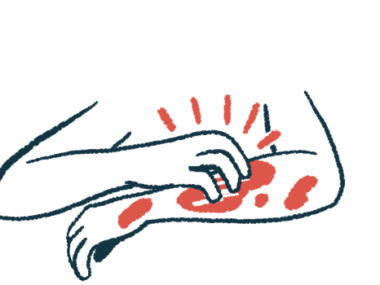Abeona Launches Phase 3 Trial Testing EB-101 Cell Therapy for RDEB
Written by |

Abeona Therapeutics has begun its Phase 3 VIITAL trial evaluating EB-101, a gene-corrected cell therapy for the treatment of recessive dystrophic epidermolysis bullosa (RDEB), the company recently announced.
An institutional review board at Stanford University approved the start of the pivotal trial (NCT04227106), following clearance from the U.S Food and Drug Administration, which initially put the trial on a clinical hold due to concerns about the therapy’s stability during transport. Now that most study participants have been pre-screened, Abeona plans to treat the first patient in the first quarter of this year.
Trial investigators at Stanford Medicine are still enrolling eligible participants, and additional clinical sites are expected to open over the following months. More information, including contacts and locations, is available here.
“We expect 2020 to be a transformational year at Abeona, and we are proud to start it with the initiation of our pivotal Phase 3 study evaluating EB-101 in RDEB,” João Siffert, MD, CEO of Abeona, said in a press release. “We look forward to the first patient receiving EB-101 this quarter, setting in motion the final stages of this important program.”
RDEB is caused by mutations in the COL7A1 gene, which contains instructions for making a crucial protein for skin health called type VII collagen (COL7).
EB-101 is designed to deliver a corrected version of COL7A1 directly to patients’ skin cells cultured in a lab dish. These genetically modified cells are then transplanted back into patients to restore the production of COL7.
VIITAL is a multicenter, randomized trial to assess the therapeutic potential of EB-101 to heal approximately 30 large, chronic wounds in up to 15 patients with RDEB.
The main goal is to evaluate the proportion of wounds achieving at least 50% healing within three months of treatment by comparing treated with untreated wounds on the same patient.
Secondary goals include evaluating patient-reported outcomes including overall impression of changes in pain levels, pain while dressing, impact of pain on quality of life, and physical function.
A Phase 1/2a trial (NCT01263379) conducted at Stanford showed that EB-101 led to effective wound healing for up to five years in seven adults with RDEB. No serious treatment-related side effects were seen.
“EB-101 has the potential to be the first approved therapy for RDEB and the only durable treatment to address large chronic wounds, which are the most painful and debilitating,” Siffert said.
The batches of EB-101 that will be used will be produced at the Elisa Linton Center for Rare Disease Therapies, Abeona’s specialized gene and cell therapy manufacturing facility in Cleveland.
“We have devoted significant effort to establish and validate our independent, fully-functional GMP [good manufacturing practices] facility that will produce EB-101 for the VIITAL study and has capacity to support commercial launch,” Siffert said.





